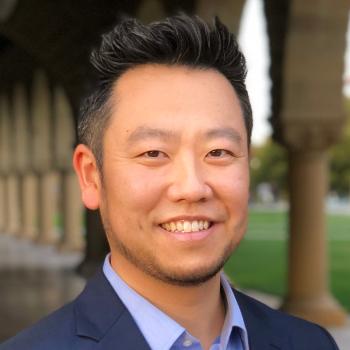Bio
Dr. Myung is an Associate Professor of Ophthalmology at the Byers Eye Institute at Stanford and, by courtesy, of Chemical Engineering. He is a board-certified ophthalmologist and attending physician specializing in cataract and corneal surgery and external diseases of the eye, and the Director of the Ophthalmic Innovation Program, a project-based fellowship in the development and regulatory science of new eye care technologies. Dr. Myung leads an NIH-funded translational research laboratory focused on two areas of clinical need: (1) ophthalmic regenerative medicine through tissue engineering and drug delivery, and (2) global health through mobile technologies and telemedicine. His research group takes an interdisciplinary approach toward fostering regeneration of ocular tissues, by using chemistry to not only build biomimetic cellular architectures but also to target and release bioactive molecules to promote healing. Current projects are directed toward the use of bio-orthogonal and supramolecular crosslinking chemistries for the localized delivery of growth factors and/or stem cells to wound sites, the synthesis of bioactive wound dressings and vehicles, the creation of biopolymeric tissue scaffolds, and 3D bioprintable inks for tissue engineering.
Dr. Myung is also Director of the Stanford Teleophthalmology Autonomous Testing and Universal Screening (STATUS) Program, which is pushing the boundaries of telemedicine and AI to improve eye care worldwide. He and his collaborators investigate the role of mobile technologies and AI in enabling diagnostics and patient care outside of traditional health care settings. Their goal is to challenge current paradigms of eye care delivery through new digital health technologies and telemedicine to increase access to care in resource-limited settings both in the US and abroad. In collaboration with his retina, primary care, and endocrinologist colleagues at Stanford, he has organized and leads a Bay Area-wide Remote Diabetic Eye Care Program. Through this program, patients with diabetes can have their eyes photographed and analyzed by an FDA-cleared autonomous artificial intelligence algorithm at clinics throughout the Bay Area and then, if needed, referred in for further evaluation by a retina specialist. More information about the STATUS program can be found at: http://med.stanford.edu/ophthalmology/patient_care/tele-eyecare.html#remote_diabetic_eyecareprogram


